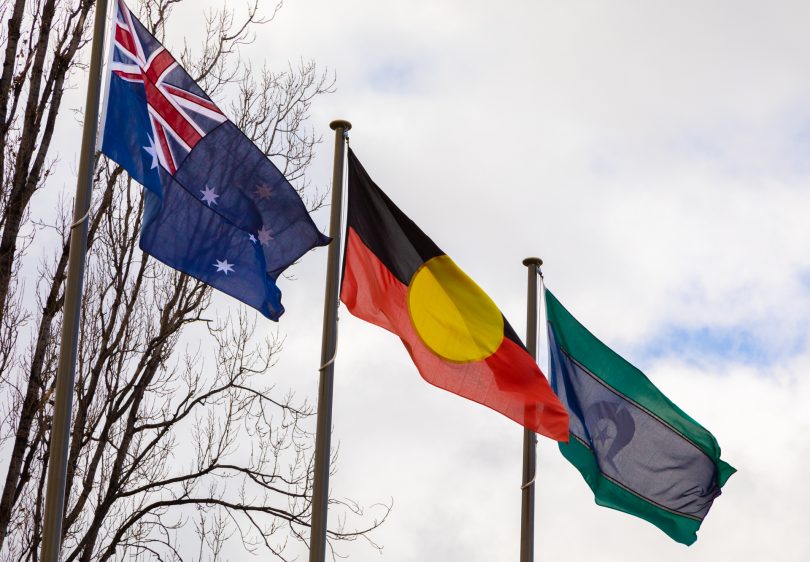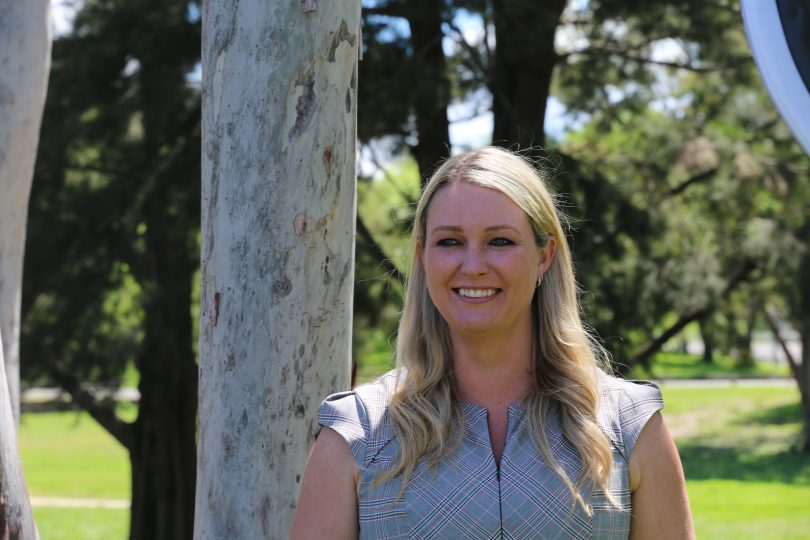
The proposed amendment to the current legislation would see the word ‘colonisation’ replaced with ‘reconciliation’. Photo: Michelle Kroll.
A proposed amendment to the ACT’s current place naming legislation could see the word ‘colonisation’ replaced with ‘reconciliation’.
The ACT’s Public Place Names Act 1989 enables the Planning Minister to determine the name of public places across Canberra.
This includes the naming of an avenue, road, street, geographical feature or place that the public is entitled to use, and any unleased land.
Currently, it reads that the Minister making such decisions must consider matters including “the names of persons famous in Australian exploration, navigation, pioneering, colonisation, administration, politics, education, science or letters”.
Labour backbencher Dr Marisa Paterson brought the proposed change to the Assembly. She said the word ‘colonisation’ was offensive to many people in the community and carried negative connotations.
She said if the change were to pass, it would mark a positive step toward reconciliation in the ACT.

Dr Marisa Paterson introduced the proposed amendment to the bill with the support of the ASTIEB. Photo: Dominic Giannini.
Dr Paterson said the fact the word was still included in the ACT’s legislation at all was proof that “we still have a way to go with decolonising our legislation and our policies”.
“These things are just entrenched in our law and we need to be proactive in removing them.”
Dr Paterson said the change was simple, but very meaningful, and focused on moving forward.
“What it should do is spark a community conversation about these things and about who we remember and celebrate,” she said.
She said her amendment wasn’t about ‘changing history’.
“That’s why part of the amendment will be to include people who’ve been major contributors to reconciliation,” Dr Paterson explained.
“There’s merit in acknowledging that someone was a coloniser, but we need to have the right historical frame on what they did and why.
“Colonisation is not celebrated anymore like it was 100 years ago and I think there’s a lot of conversations that need to be had about Aboriginal self-determination and treaty,” Dr Paterson said.
She said it was instead time to give greater attention to those who have made, and continue to make, positive contributions towards reconciliation in the Territory.
Dr Paterson noted the significance of the timing of the introduction of the bill – next January will mark the 50th anniversary of the Aboriginal Tent Embassy.
She’s also consulted with the ACT’s Aboriginal and Torres Strait Islander Elected Body (ATSIEB), which has supported the proposed change.
ATSIEB Member Paula McGrady said the timing was important given the Tent Embassy’s significance to Aboriginal and Torres Strait Islander people.
“They [Aboriginal and Torres Strait Islander people] all deserve remembrance to their story, to reignite their existence in what they sacrificed for equality, equality that represents a future where all of our cultural lands and connections are embraced in the spirit of truth-sharing and reconciliation,” she said.
The amendment was introduced in the ACT Legislative Assembly on Tuesday afternoon (30 November). The debate has been adjourned until next year’s sitting.
Dr Paterson hoped the debate could go ahead in next year’s Reconciliation Week.




















